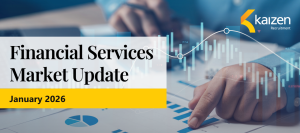Financial Services Market Update FY 2025-2026
Market Overview
The financial services talent market in 2025 is navigating a period of recalibration, shaped by structural industry shifts, regulatory reform, and evolving client expectations. Superannuation fund mergers, heightened compliance demands, and the rise of private markets are influencing hiring strategies across investments, distribution, and risk functions. While some areas have seen more cautious hiring activity, demand remains strong for specialist talent in private credit, financial advice, and digital communications. Firms are increasingly prioritising agility, cross-functional collaboration, and strategic capability over traditional experience, reflecting a broader shift toward future-ready workforce planning.
- Risk, Compliance and Assurance
- ESG and Sustainable Investments
- Investments and Operations
- Funds Distribution
- Wealth and Advice
- Marketing, Communications and Digital
- Member Services and Education
Risk, Compliance and Assurance
Regulatory Shifts and Sector Impacts
APRA and ASIC continue to tighten oversight with new trustee obligations and audit standards. Governance expectations around valuation and liquidity risk remain high, especially for unlisted assets, while superannuation fund consolidation has added complexity, prompting more mature risk frameworks. This year, superannuation funds increased demand for Line 1 operational risk and compliance roles, driven by APRA scrutiny. This marks a strong contrast from last year’s demand for Line 2 enterprise risk experience to meet CPS/SPS 230 frameworks and control obligations.
CPS/SPS 230 prompted enterprise-wide revisions to operational risk and outsourcing protocols, while SPS 530 sharpening investment governance standards. The Financial Accountability Regime introduced new executive liability and reporting standards for senior leaders, aligning with the rise of AI and automation, which are reshaping audit and compliance workflows. Predictive analytics, anomaly detection, and automated control testing are now part of the toolkit, with audit leaders overseeing AI governance and data ethics.
Post-Royal Commission, wealth management has seen subdued hiring and leaner team structures for risk and compliance professionals. Candidates from this space often bring administrative-heavy experience, which may not align with the broader governance needs now prevalent in superannuation and funds management. In contrast, FinTechs and private credit funds are scaling rapidly amid growing regulatory scrutiny, expanding their risk and compliance teams in areas like financial crime, third-party risk, and operational resilience. These roles often offer broader remits and flatter structures, appealing to professionals comfortable in fast-paced, tech-driven environments.
Strategic Shifts in Risk and Compliance Hiring
As organisations reshape their operating models, team structures and hiring priorities are evolving in tandem. There’s now greater collaboration across compliance, investments, technology, and risk functions, with investment operations integrating more tightly with governance. Hiring activity remains focused at the Analyst and Manager levels, with organisations prioritising execution over leadership expansion. These roles were largely driven by remediation, regulatory uplift, and operational support, rather than strategic transformation. Contractor demand has also increased, providing flexible coverage for parental leave and short-term capability uplift without increasing permanent headcount.
Privacy became a key executive focus earlier in the year. While it did not lead to new role creation, responsibilities were absorbed into existing compliance structures, increasing workload for current leaders. In parallel, cybersecurity has emerged as a distinct priority following a series of high-profile incidents. Once a stand-alone domain, it is now embedded across risk processes, creating hybrid roles that blend technical fluency with strategic oversight. Certifications such as CISA and CIA, which support cybersecurity and audit capability, are increasingly valued.
We have observed Sydney’s talent pool for risk and compliance professionals expanding, especially those from Big 4 backgrounds. However, employers are prioritising those who can transcend their narrow and siloed experience and drive strategic insight as reputational risk and compliance deadlines intensify. As familiarity with ASIC’s RG 146, RG 78, RG 271, and RG 274 frameworks remain highly relevant, demand continues to grow for skills in operational due diligence, investment governance, third-party risk, and cybersecurity. In today’s risk and compliance landscape, hireability no longer hinges on just technical expertise, but in versatility.
ESG and Sustainable Investments Space
Outlook for ESG Talent in Investments
Hiring activity in ESG and sustainable investment within financial services has slowed following several years of strong growth, attributing to broader geopolitical and economic uncertainty as well as reduced turnover among ESG professionals.
Yet demand also remains strong for skills in ESG integration, reporting, due diligence, and strategy development. The introduction of the Australian Sustainability Reporting Standards (ASRS) by the Australian Accounting Standards Board (AASB) has increased sustainability reporting roles across sectors, particularly with IFRS S1 and S2 alignment. In response, many organisations are engaging external consultants to support early-stage implementation and compliance with its equally-evolving requirements.
Additionally, capabilities in investment stewardship, data analysis, and carbon accounting are als0 gaining traction. For roles within superannuation and funds management, deep investment knowledge (especially in private markets) remains critical as interest grows in sustainable alternatives beyond public markets.
ESG Sentiment and Market Resilience

Looking ahead, regulatory and economic factors will shape ESG hiring. The recent federal election outcome may offer businesses greater certainty to plan and invest in long-term capability. Fundamentally tied to sound risk management, long-term hiring demand for this space is expected to remain resilient as climate change and sustainability continue to present material risks to business operations. Now is the time for businesses to assess existing ESG capabilities, consider future needs, and ensure pipelines are in place for when the market inevitably rebounds.
Investments Market
Investment Talent Demand and Hiring Dynamics

Despite this, recruitment remains steady at the Analyst level, with growing focus on Senior Analysts. Demand remains strong for specialist talent in fixed income, private markets, and real assets, and increasingly, agriculture. Infrastructure, credit, and unlisted investments skills and knowledge are increasingly sought after while investment strategy and asset allocation skills remain one of the hardest to source. Generalist investment research skills, particularly those developed in asset consulting, continue to offer a reliable pathway into internal superannuation teams.
A growing challenge is the retention of key investment professionals. With talent movement slowing, funds are focusing more on internal development, engagement strategies, and succession planning to retain high-performing staff. Gender diversity remains a key agenda item, with acute demand for senior female investment professionals. Several firms have requested female-only shortlists, but this cohort remains limited, often requiring a salary premium to attract or retain. This dynamic continues to impact recruitment timelines and workforce planning across multiple asset classes.
Shifts in Investment Leadership and Organisational Strategy
At the executive level, the Chief Investment Officer (CIO) role is evolving further into a more strategic leadership position, with a strong focus on governance, communication, and organisational alignment. They are less likely to be making direct investment decisions and are instead leading high-performing teams of specialists and engaging deeply with Boards and external stakeholders.
Evolving market conditions and tighter regulatory scrutiny, especially for private credit, have dampened hiring confidence, with tightened budgets and reluctance to hire non-essential roles. However, the rise of internal investment management within superannuation funds and the pressure to meet performance benchmarks are expected to sustain demand for professionals with expertise in defensive and alternative assets.
Investment Operations Trends

A key trend Kaizen observed working on investment operation roles last quarter: even candidates are increasingly looking to transition from public to private markets. However, there is a shortage of private credit operational talent, resulting in hiring managers becoming more open to recruiting based on aptitude and attitude, and providing training for technical upskilling.
The challenge remains for junior candidates to break into the market as entry-level roles continue to be offshored. This, coupled with volatility in the financial market, has led to recruitment freezes particularly in small to medium-sized firms. However, new roles are still being created as firms continue optimising back-office efficiency through functional separation across processing, client servicing, data, and accounting roles.
Bringing Investment Strategy to Market: Funds Distribution
As investment teams evolve their strategies and operations adapt to internalisation and private markets growth, fund managers across retail, wholesale, and institutional channels are forced to rethink how they stay competitive with changing investor behaviour, regulatory pressure, and technology innovation.
Retail Distribution
Retail continues to shift as adviser numbers fall below 16,000 nationwide. This decline is accelerating the shift toward direct-to-consumer strategies, particularly targeting high-net-worth investors, which is more advantageous for the wholesale market. ETFs and managed accounts remain dominant, offering low cost, transparent solutions amid market volatility. Passive strategies are gaining traction, and fee pressure is pushing managers to reassess pricing and clearly articulate their value.
Wholesale Distribution
Hiring activity here is actively expanding, thanks to broad eligibility criteria and growing demand for tailored, outcome-driven solutions like managed accounts and private credit. Business Development Managers with strong networks and a consultative approach are in high demand while third-party distributors are gaining ground as global managers scale back local operations due to high costs. Private credit may be booming, especially among family offices and HNW/UHNW investors – but without Lonsec or Zenith ratings, capital raising capabilities remain a challenge.
Institutional Distribution
Driven by the Your Future, Your Super reforms, institutional distribution is undergoing consolidation as super fund mergers are reducing external mandates as funds increasingly insource. Tightened regulatory scrutiny on private market valuations is also prompting managers to improve transparency and risk controls. As institutional opportunities shrink, many managers are pivoting toward more dynamic wholesale and retail channels. Consultants remain key gatekeepers in this space.
For some BDMs transitioning from institutional into wholesale or consulting roles, both experienced and emerging talent can continue to thrive given the broader investor base. But while networks still matter, they are no longer enough, creating space for motivated newcomers to break in. And unless a fund is significantly outperforming, capital raising remains a challenge especially in the private debt space. Distribution across all channels is all about agility this 2025, and its success hinges on consultative selling, tech fluency, and delivering real value in a fast-moving, competitive environment.
Wealth and Advice
Demand for Advisers Increases, Outpacing Supply
Financial planning recruitment is showing strong signs of recovery after a prolonged slowdown, driven by a renewed demand for qualified Financial Advisers amid a constrained talent pool. As advisers have left the industry, this created a supply gap that firms are racing to fill.
Firms across the industry are actively seeking experienced advisers, particularly those who can bring an existing client book with them. This trend reflects a continued emphasis on revenue generation and client retention, as businesses look to bolster their advisory capabilities without the long lead times associated with building a client base from scratch.
However, the market is also evolving. While the demand for self-sufficient advisers remains high, there is a noticeable uptick in opportunities for advisers to take over established client books. This shift is largely being driven by a wave of retirements among senior advisers, prompting firms to prioritise succession planning and continuity of service for long-standing clients.
Strategic Shifts in Client Acquisition
In parallel, many advisers are recalibrating their growth strategies. A significant number are now focusing their business development efforts on attracting High Net Worth (HNW) individuals, recognising the long-term value and complexity of servicing this segment. Others are exploring opportunities in the wholesale advice space, aiming to diversify their client base. These strategic shifts reflect broader changes in client expectations and the evolving regulatory landscape, which continue to shape how advice is delivered and monetised.
As the market continues to stabilise, we expect recruitment activity to remain strong, particularly for advisers who can demonstrate both technical expertise and a clear value proposition for clients. Firms that invest in structured onboarding, succession planning, and adviser development will be best positioned to capitalise on the current momentum.
Marketing, Communications and Digital

Government relations has become a growing area of focus post-federal election, with media and lobbying experience emerging as sought-after skill sets. Retention and growth remain strategic priorities, prompting a surge in content-driven roles – particularly Content Managers and Communications Managers with hands-on experience across strategy, content creation and execution.
Tighter regulatory pressure, particularly in superannuation and private credit, is driving demand for regulatory communications professionals, with capability gaps emerging around mandatory projects like TMDs, PDSs, and SENs. Those with proficiency in CRM tools like Dynamics 365 or Salesforce, along with automation tools like Adobe Campaign or Salesforce Marketing Cloud are in high demand as wealth and fund managers move to bring these capabilities in-house.
Salaries across this market remain stable, although we are starting to see an increase for those with niche skills such as:
- Regulatory Communications (Ex. being able to write a PDS from scratch)
- An ability to translate complex concepts into easy-to-understand language (Ex. presenting member analytics data to the sales team, or conducting organisation-wide trainings on a CRM / Automation system)
A Renewed Focus on Intangible Skills
Outside of financial services knowledge, there is also a more acute focus on attitude over experience. Organisations are hiring talent out of graduate programs or are open to candidates who come from B2B backgrounds – even if they do not necessarily have experience in financial services. Skills-based testing platforms like SHL / Chandler McLeod are proving useful here to help predict future capabilities.
While the market is showing strong signs of recovery, the ability to attract and retain talent remains just as important. In a recent LinkedIn poll, over 75% of marketers said they wouldn’t consider a role requiring four days a week in the office, underscoring how flexibility continues to be a key priority. However, in a separate poll, strong leadership and mentorship were ranked even higher, highlighting that in a competitive and evolving landscape, culture and purpose matter just as much as opportunity.
Member Services and Education
Elevated Expectations in Member Experience Driving Targeted Hiring
Member Services and Education teams continue to be a critical pillar for funds looking to elevate engagement, retention, and financial wellbeing outcomes for their members. While overall hiring volumes have remained steady compared to FY24, the expectations placed on talent in this space have increased significantly.
The shift toward outcomes-driven service models is prompting funds to seek professionals with not only excellent communication skills but also the technical depth to handle increasingly complex enquiries, especially around retirement, hardship, and legislative changes.
Stable Mid-Level Demand, Selective Entry-Level Hiring

There is growing demand for candidates who can work cross-functionally – those able to partner with Advice, Marketing, and Digital teams to deliver integrated member experiences. Funds are also prioritising succession planning within Member Education teams, especially those tied to retirement outcomes and advice-readiness.
Digital Tools Are Evolving, But Human Connection Still Wins
AI-powered CRMs (such as Salesforce), chatbots, and live chat platforms are now common within Member Services. These tools are streamlining triage and engagement workflows but have not replaced the demand for empathetic, phone-based service – especially for complex or emotionally charged interactions.
Importantly, candidates who are digitally fluent yet member-centric are in high demand. Funds are seeking professionals who can comfortably navigate tech platforms while maintaining a personal, values-aligned member experience.
Final Thoughts
Talent acquisition strategies must continuously adapt to meet the demands of the complex and competitive financial services environment. Regulatory reform and digital transformation are still reshaping workforce demands across the sector. Amid this change, the ability to identify, attract, and retain top-tier talent has emerged as a critical differentiator for organisational performance.
Recruitment agencies play a pivotal role in enabling this strategic alignment, allowing organisations to become agile in responding to market shifts, reducing time-to-hire and improving candidate quality through advanced sourcing techniques and deep industry networks.
Moreover, specialised recruitment firms like Kaizen Recruitment
bring nuanced understanding of regulatory requirements, remuneration trends, and candidate motivations relevant to niche sectors like financial services, where talent scarcity and compliance complexity converge. Our team provide our clients with data-led hiring strategies, sector-specific insights, and targeted search methodologies that align with both current and emerging market needs. Our partnerships are grounded in evidence-based practices and market intelligence, helping organisations navigate uncertainty while building resilient and future-ready teams, which we look forward to continuing into this next financial year ahead.
Get in touch
Based in Melbourne and Sydney, Kaizen Recruitment specialises in financial services recruitment across funds management, wealth management, superannuation, investment consulting and insurance. If you’d like to discuss candidate career drivers and the current state of the market within the financial services recruitment landscape, feel free to reach out to us with your details below.
Like what you see?
Please feel welcome to join
Kaizen Recruitment’s mailing list
















